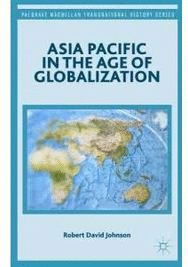American Political Parties (spring 2024) (Group 1)
This course examines American political parties from the First Party System to the current day. Topics will include Jacksonian democracy, the rise and fall of the Whigs, the formation and evolution of the Republican Party, changing voting procedures and norms, the rise and fall of the New Deal coalition, and the effect of race and the Cold War on U.S. politics. The course will conclude by examining what the 2010 election says about the current party system.
Books:
- Allen & Parnes, Shattered
- Andrew Busch, Reagan’s Victory
- A.J. Baime, Dewey Defeats Truman
- Alan Brinkley, The End of Reform
- Ron Chernow, Alexander Hamilton
- Eric Foner, Free Soil, Free Labor, Free Men: The Ideology of the Republican Party before the Civil War
- Michael F. Holt, By One Vote: The Disputed Presidential Election of 1876
- Daniel Walker Howe, What Hath God Wrought: The Transformation of America, 1815-1848
- Judis & Texeira, Where Have All the Democrats Gone?
- Michael McGerr, A Fierce Discontent: The Rise and Fall of the Progressive Movement in America, 1870-1920
- Rick Perlstein, Before the Storm: Barry Goldwater and the Unmaking of the American Consensus
- W.J. Rorabaugh, The Real Making of the President
My Contact Information:
- email: kcjohnson9@gmail.com
- cell: 207-329-8456
Requirements:
- Research Paper (50%)
- Participation (20%)
- Supplementary Presentations (30%)
Schedule:
week 1: The First Party System
- Chernow, Hamilton, chapters 19-end
week 2: The Second Party System
- Daniel Walker Howe, What Hath God Wrought: The Transformation of America, 1815-1848, pages 1-124, 328-446, 570-613, 792-855
Supplementary reading
- 1840 (Joanna)
- 1848 (Danny)
week 3: Creating the Republican Party
- Eric Foner, Free Soil, Free Labor, Free Men: The Ideology of the Republican Party before the Civil War
Supplementary reading:
- 1860 (Mohammed)
- 1868 (Kevin)
week 4: The Onset of the Gilded Age
- Michael F. Holt, By One Vote: The Disputed Presidential Election of 1876
Supplementary reading:
- 1892 (Elena)
- 1896 (Giuseppe)
March 4: Reform Sentiments
- Michael McGerr, A Fierce Discontent: The Rise and Fall of the Progressive Movement in America, 1870-1920
Supplementary reading:
- 1912 (Leila)
- 1916 (Joanna)
March 11 New Deal and Reform Sentiment
- Alan Brinkley, The End of Reform
Supplementary reading:
- 1924 (Arlene)
- 1928 (Hinna)
March 18: Cold War Liberalism
- Baime, Dewey Defeats Truman
Supplementary reading:
- 1952 (Elena)
March 25: 1960 & A New Generation
- W.J. Rorabaugh, The Real Making of the President
Supplementary Reading:
- Robert Caro (excerpts) (Mohammed)
April 1: 1964 & The Transformations of the Parties
- Rick Perlstein, Before the Storm: Barry Goldwater and the Unmaking of the American Consensus
Supplementary reading:
- Luke Nichtner, The Year That Broke Politics (Danny)
April 8: Research Day
April 15: Beyond New Deal Liberalism
- Andrew Busch, Reagan’s Victory
Supplementary reading:
- 1988 (Leila)
- 1992 (Joanna)
[spring break]
May 13: The Onset of Modern Partisanship
- Allen & Parnes, Shattered
- Supplementary reading:
- 2000 (Kevin)
- 2008 (Giuseppe)
May 20: The Contemporary Party System
- Judis & Texeira, Where Have All the Democrats Gone?
Supplementary reading:
- Sabato and Kondik, Trumped (Arlene)
- Judis & Texeira, The Emerging Democratic Majority (Hinna)
Learning objectives for this course include: (1) ability to read and interpret key historical sources, including primary sources, court cases, and congressional debates; (2) ability to determine how important themes in U.S. political parties change over time; (3) ability to present key research arguments in writing. Item (1) will occur throughout the course; item (2) will occur throughout the course; item (3) will occur in the final paper.
The faculty and administration of Brooklyn College support an environment free from cheating and plagiarism. Each student is responsible for being aware of what constitutes cheating and plagiarism and for avoiding both. The complete text of the CUNY Academic Integrity Policy and the Brooklyn College procedure for implementing that policy can be found at this site: http://www.brooklyn.cuny.edu/bc/policies. If a faculty member suspects a violation of academic integrity and, upon investigation, confirms that violation, or if the student admits the violation, the faculty member MUST report the violation.
In order to receive disability-related academic accommodations students must first be registered with the Center for Student Disability Services. Students who have a documented disability or suspect they may have a disability are invited to set up an appointment with the Director of the Center for Student Disability Services, Ms. Valerie Stewart-Lovell at 718-951-5538. If you have already registered with the Center for Student Disability Services please provide your professor with the course accommodation form and discuss your specific accommodation with him.
State law regarding non-attendance because of religious beliefs can be found on p. 56 in the Bulletin.
